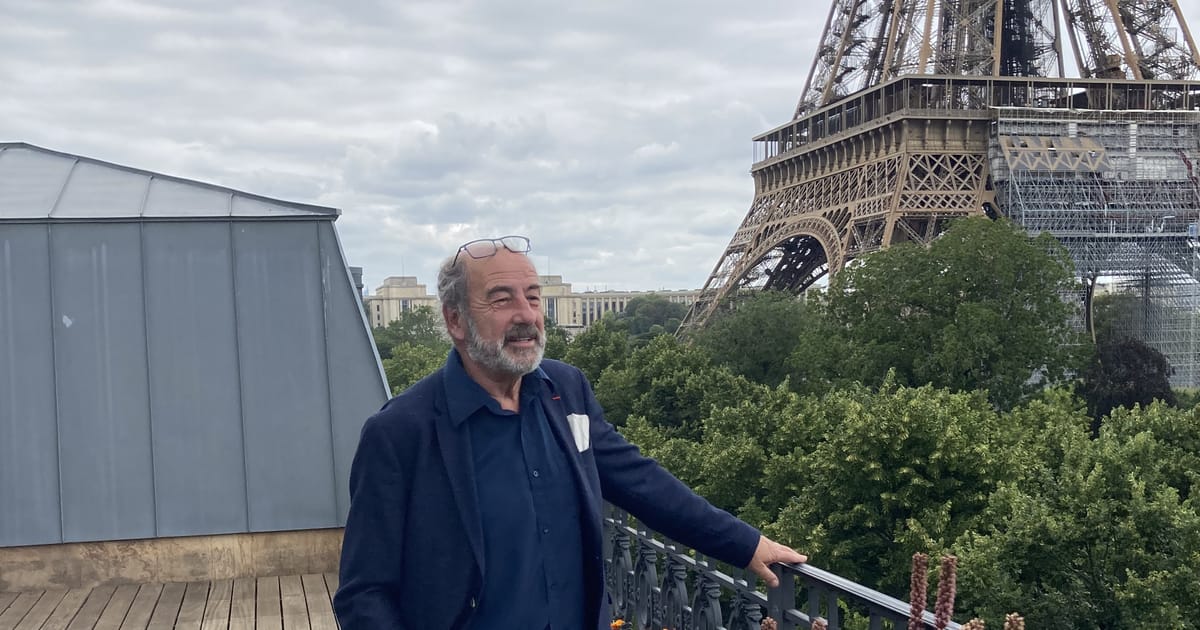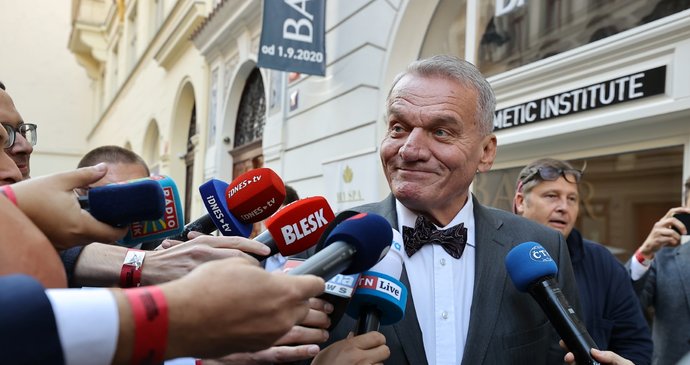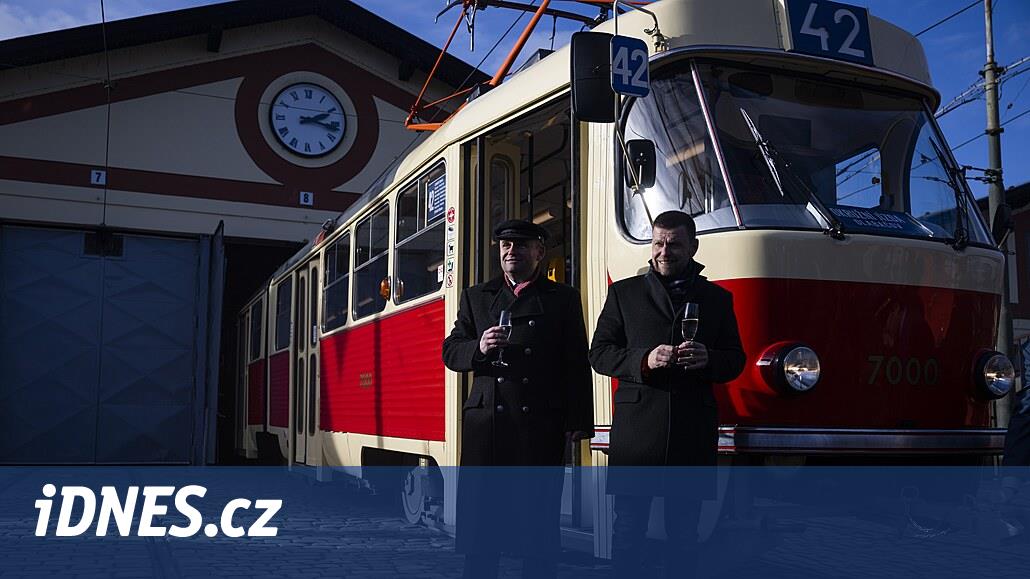I am at home in Prague and Paris, says the Czech ambassador to France Michal Fleischmann
His father Ivo was a poet and diplomat. After the August invasion in 1968, he fled Czechoslovakia for several years to Paris. After 1989, Michal Fleischmann returned to Prague, where he represented the French group Lagardère. In the year he accepted the post of ambassador, his home became Paris again. He already knew the embassy building well, as he lived here as a little boy when his father worked in France as a cultural attaché and advisor.
I noticed that in Prague they call you Micheli, while in Paris in Czech Michal…

“I represented a French company in Prague, so they called me Michel. But my official name is Michal. “
How does it feel to return to Paris as ambassador?
“It simply came to our notice then. My father worked here as a cultural attaché and later a cultural advisor. I lived at the embassy as a little boy and I knew every corner of it. “
The building where the embassy is located today originally served as the winter residence of Princess Elisabeth de Ligne. What has changed here over the years?
“A lot of things. The beautiful house where the embassy is located was bought by Czechoslovakia in the 1920s. It is the oldest seat of the Czech Embassy in the world. The then government bought it from Princess Elisabeth Françoise Marie de Ligne, née de la Rouchefoucauld, who used it as a winter residence.
Since my youth, the building has been renovated and changed a lot. For example, the cellar with alcohol, which I was very interested in at the time, was transformed into a kitchen and the staircase where I hid the key to that cellar no longer exists … And above all, a floor with a beautiful terrace overlooking the Eiffel Tower has been added! “

Your father Ivo Fleischmann was the first Czechoslovak diplomat to flee Czechoslovakia after the events of the Prague Spring. How do you remember this period?
“I was not in Paris at the time, I was studying in the Czechoslovak section at the Alphons Daudet lyceum in Nîmes. But my brother was in Paris at this time, and he often told me how he was trying to subtly leave an apartment on Fondary Street, just a few steps from the embassy.
A few weeks after my father’s escape, which caused a great stir, a dinner was held at one of his friends, which was also attended by my parents’ friends Simone Signoret and Yves Montand. Simone asked her father how his escape was going. He replied that very discreetly. She was angry and scolded him for allegedly calling all the embassy staff, telling them the truth and leaving vigorously. Áta into the car my brother would drive, and they would leave immediately. Simone didn’t like Tat’s reaction… “
After learning of your father’s escape, did you return from Nîmes to Paris?

“Yes. My mother was waiting at the station then and told me that we would stay in France. It was a really hard moment for me… “
You were a minor at the time, while your brother Peter was 18, which was crucial in terms of formalities and disability…
“I was only a few weeks away from coming of age, so I was happy to be” a minor, forcibly dragged into exile “, and therefore I was not prosecuted by the Czechoslovak state. However, my brother was convicted of not entering the military service, my mother for a year and a half, and my father for two or three and a half years for defection and betrayal of the socialist Czechoslovak state. After 1989, of course, the sentences were abolished. “
About thirty years after you left Paris for Prague, you returned here again as ambassador. Isn’t it a bit frustrating to start in such a position in the middle of a pandemic?
“It was frustrating and unexpected. I arrived in Paris on January 15 and at the beginning of February it all started… I only managed to meet briefly with some representatives of the French government and especially with people from the Ministry of Foreign Affairs. Very quickly, however, I found myself in a role where we had to help many Czech citizens who wanted to return home and who passed through France. It was necessary to take care of about 600 to 700 people. I never expected this to happen. In this crisis situation, the experience of the private sector helped me more. A huge piece of work was done by the Czech to consult here in Paris in cooperation with the French Embassy in Prague. We managed to send dozens of buses, and we drove citizens to smaller towns and the countryside with our cars. ”
Is diplomacy already working around before the pandemic?

“More or less yes, but basically nothing stopped, the meetings continued online. But we had to give up the reception. Due to the pandemic, we also could not make better progress in what we are interested in, namely in the preparations for the presidency of France and the Czech Republic for the Council of the EU, which both countries will take over next year. “
To what extent are these EU Council presidencies complicated by the dates of the elections in the Czech Republic and France?
“As for the October parliamentary elections in the Czech Republic, there is not much talk about them. Until their results are known, they remain out of the diplomatic debate. So far, they have no influence on the preparation of the Czech Presidency. From France’s point of view, it is true that its presidency will be a little strange because of the April presidential elections. The new president will take office in May. Given that there is a reserve period before the elections so that members of the government and the president do not influence the elections through the French EU presidency, it appears that around 320 meetings will have to be gathered in the first three months of January to March, it will be interesting to monitor the situation. “
How do you, as ambassadors, succeed in developing Czech culture?

“I hope to be able to focus more on culture. Cultural diplomacy, especially in France, is part of international diplomatic relations. As with my predecessors, my task in France is to spread awareness of Czech culture. For example, we managed to repair the grave of Josef Šíma and exhibit some of his works in the vicinity of the embassy. We also organized an exhibition focused on Egyptology and an exhibition of Czech glass awaits us. Thanks to our honorary consulates, these exhibitions should be itinerant within France. “
We are preparing a lot of activities for the Czech Presidency of the Council of the EU. We owe their preparation mainly to the Czech Center in Paris, whose employees do a huge amount of work. Make sure that you reach an agreement on joint concerts between the orchestras of Czech Radio and Radio France. Above all, I would very much like to bring to Paris the play by Milan Kundera, The Owners of the Keys, presented by the Brno National Theater. “
Is Milan Kundera an important figure for Czech-French cultural relations?
“Extremely important. He is the most famous Czech writer in the world rankings. The fact that her French consider themselves theirs is fine. For us, however, he remains Czech and, of course, we defend his freedom. He is one of the personalities who managed to get the Czech Republic into world consciousness and world literature, while still not forgetting his Brno origins. “



